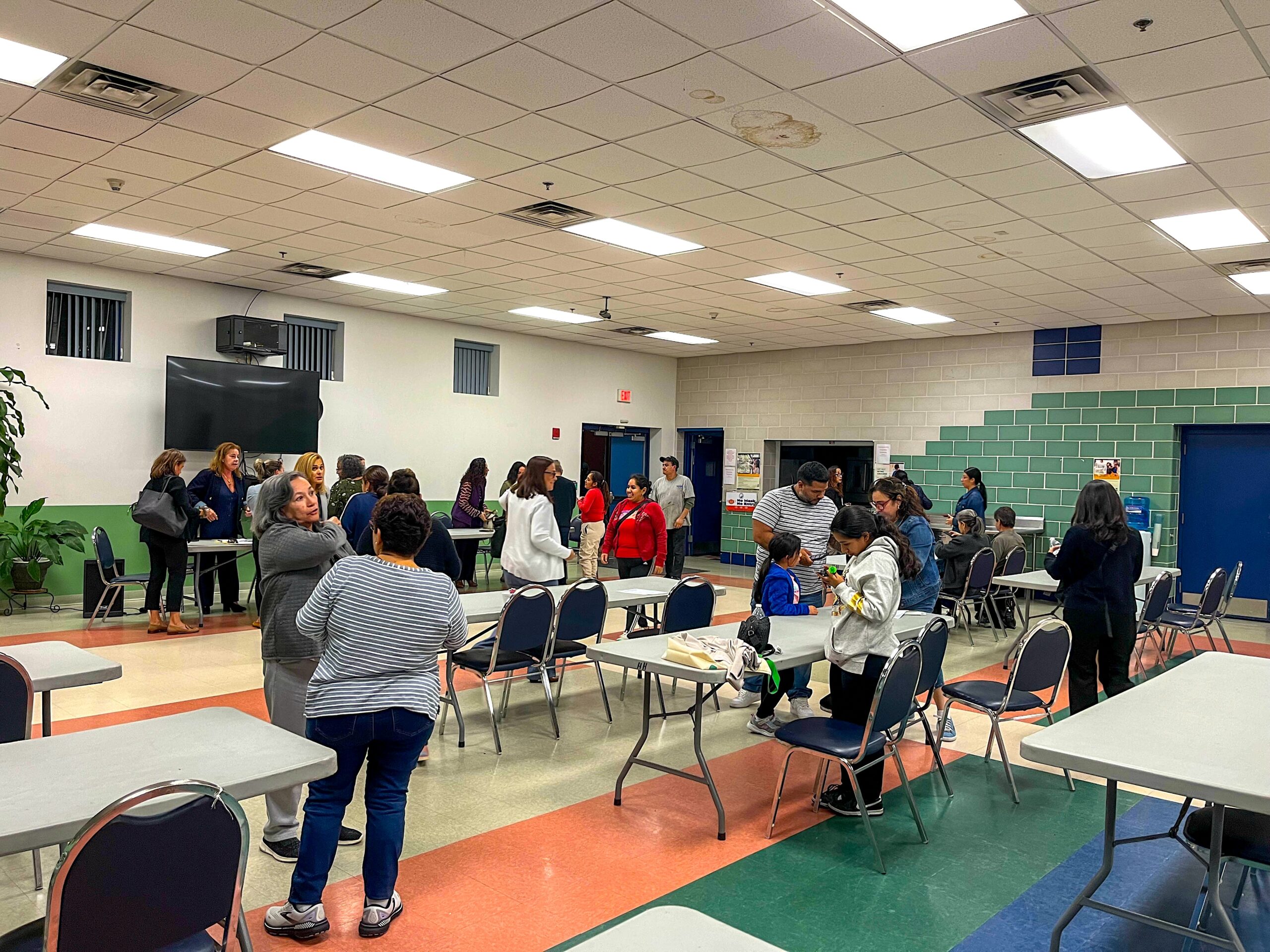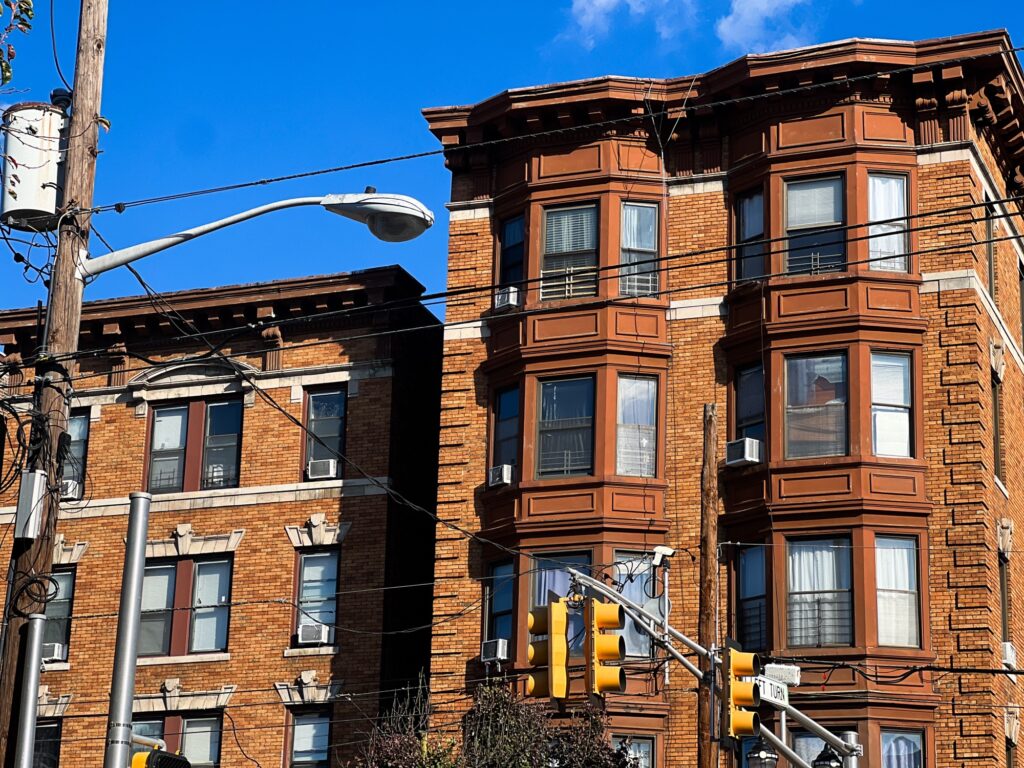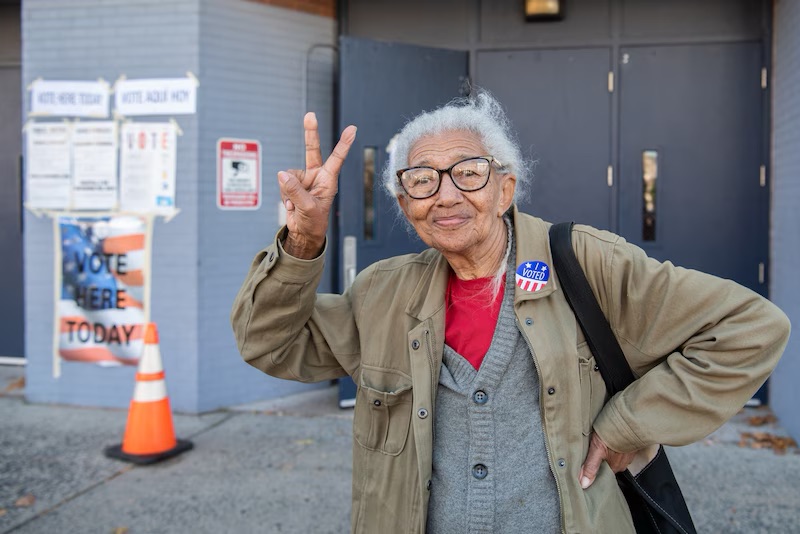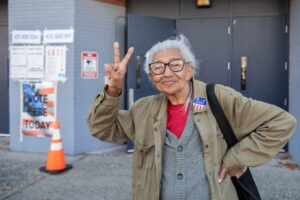Photo by Neidy Gutierrez / SOC Images.
Chatter and laughter fill the air at a West New York multipurpose room as families of all sizes await a night of learning; the need for education and understanding is visible as more than half the tables are occupied.
The town of West New York hosted its first-ever “Understanding Your Rights As A Tenant” seminar/panel to connect the community with the Rent Control Board and attorneys moderated by Ana Luna, secretary of the Rent Control Board.
Conducted in English and Spanish, Secretary Luna began the night by saying, “I basically feel that it is very important [for] people to know about rent control and what we do in rent control.”
In attendance were Rent Control Board Chairwoman Marileidys Baldeo, Deputy Tanya Rodriguez, Clerk Susanne Bragado, Tenant Advocate Counsel Carmen Mendiola, Esq. and Commissioner of Public Affairs Marielka Diaz.
“Decidimos hacer este seminar para puedan entender los derechos. Yo invite a mis amistades, que son my colleagues, son mis amistades, son extremely professional, te van a ayudar,” said Mendiola, in a Spanglish introduction.
Translation: “We decided to do this seminar so that you can understand your rights. I invited my friends, who are my colleagues. They are extremely professional, they are going to help you.”
“Primero que todo, quiero darle las gracias por venir aca el dia de hoy…Me siento muy feliz como Comisionada que por primera vez estamos en esta reunion informativa, esperamos que se sigan haciendo,” said Commissioner Diaz.
Translation: “First of all, I want to thank you for being here today…I feel very happy as Commissioner that we are having this informative meeting for the first time, I hope we can keep having them.”
Attorneys Ana Norris—who is set to become president of the Hudson County Bar Association next year—Rosalind Punales, Ileana Montes, Jorge Aviles and Christina Rivera were introduced as well.
Secretary Luna encouraged the public to ask questions and to reach out to them if any of them were left unanswered, “Estan aqui básicamente para ayudarlos y asistirlos,” she said.
Translation: “They are basically here to help you and assist you.”
All the attorneys present had experience in landlord-tenant, real estate and security law—all topics that would be touched upon in the seminar. Illeana Montes, Esq. also has experience in immigration law, which can intersect with the topic of tenants’ rights.

Let’s recap all the topics that were touched on.
Landlord-Tenant: Written Communication & Leases
All the attorneys emphasized the importance of having everything in the rental process documented. Any communication with a landlord should be via email, text or letter. This includes having a written lease, so that it can be used as proof in the future if needed.
Written leases also make agreements clear and can be for 12 months or renewed on a month to month basis. It is also important to understand exactly what is in your lease because a lease can:
- Explain regulations and expectations
- Responsibilities of the owner: maintenance, security, and living conditions
- Renewal (when is renewal of a lease suppose to be notified, when can you cancel/break your lease)
The panel also clarified that there is a difference between a tenant and an occupant, which is important to note when determining who is recognized by the law. A tenant is the person whose name is signed on the lease and an occupant is someone who lives with the tenant in the apartment.
Landlord-Tenant: Immigration
Illena Montes, Esq. emphasizes that there is no negative effect on signing a lease for undocumented people. In fact, signing a lease can actually help prove that the person has lived in the United States when starting the process to obtain a green card or residency.
Landlord-Tenant: Payment
As Zelle becomes a popular form of payment, the attorneys on the panel recommend that if you do not have the option to pay via a check, to keep a record of the payments you have made on the app. They also recommend that tenants should not pay rent in cash.
Security Law
Participants in the meetings were reminded that a security deposit is theirs. Tenants looking to get their security deposits back should give notice one month before if their lease is on a monthly basis.
For example, if a tenant wants to move out in November, a notice and a request for their security deposit must be made before Oct. 31. If it is a 12 month lease, tenants must give notice before the lease ends. This notice can be given via email, text or a written document. If the notice is being sent by mail, then participants in the meeting were advised to send it through regular email and certified mail to ensure there is a tracking number to refer back to.
Security deposits must be put in a bank account by the owner for the tenant and must have interest. If the property changes owners, the new owners must follow this responsibility.
Eviction & Moving Out
An owner can ask a tenant to move out for them to use the unit for personal use. However, they can only do that if the property has three units or less and ask for a full calendar month before the lease expires. This is not permitted if the unit has four or more units. A tenant has the right to take the owner to court if the owner does not actually live in the apartment after the tenant moves out.
This law changes slightly for those living in condominiums. If the owner owns one unit, they are allowed to live in the condo and ask a tenant to move. If the owner owns more than one unit, they cannot.
Late Fees & Raising Rent
West New York passed a law in August forbidding owners to charge more than $25 in late fees if the rent is paid five to fourteen days late. The attorneys encouraged everyone to check their leases to ensure that their late fees are not more than $25.
Owners cannot raise the rent two or three times a year; they can only do that annually. Participants in the meeting were told if they experienced this, they can visit office 14 in town hall. Rent cannot be raised more than 5% if you live in a rent-controlled building in West New York.
Repairs & Living Conditions
As said before, it is better to have a repair request written. If repairs are not done and the home’s conditions are unlivable or unsafe, the tenant is legally allowed to withhold rent. However, tenants must keep this money available when going to court. If not, the court will not give you a date.
The attorneys remind everyone that heat must be turned on as of Oct. 15. Rent control members remind participants that they can visit room 27 in town hall or call 201-295-5071 to speak with building inspectors.
Sub-Leasing
Tenants should ask for approval to sublease if subleasing is not mentioned in the lease. This should also be made in writing. Subleasers should also keep receipts to prove that rent is being paid.
To check for any future events, you can visit westnewyork.org and click “Calendar.”












